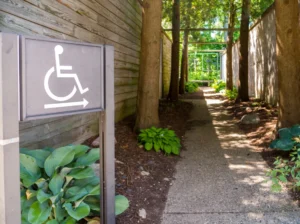Skipping tenant screening could leave you with nightmare tenants

The Definitive Guide to Rental Verifications
Looking into a potential tenant’s rental history might feel like extra work, but with so much at stake, it’s worth taking the time to do it right. The applicant wants you to hand over the key to something worth hundreds of thousands of dollars. You have a right to know everything you can about them before giving them that key.
Skipping tenant screening could leave you with renters who don’t pay on time, cause property damage, or put you through the stress and cost of eviction. According to the U.S. Office of Government Accountability, millions of tenants are evicted across the country each year.
While that number can sound alarming, not every eviction tells the same story. Some tenants may have resolved a one-time issue and moved forward without problems, while others may show a repeated pattern of missed payments or lease violations. That’s why it’s important to look at the bigger picture and to back up what applicants tell you with verified data.
This guide covers everything landlords need to know about checking a rental applicant’s housing background, including:
- What a rental history report is
- Why landlords check rental history
- How to handle applicants with no history
- How to run tenant background checks and eviction reports
- FAQs about the rental screening process
What Is a Rental History Report?
A rental history report is a detailed summary of a tenant’s past rental experiences. According to Bay Property Management Group, it often includes:
- Previous addresses
- Rental amounts paid
- Eviction records
- Late or missed payments
- Contact information for former landlords or property managers
Reports are compiled from multiple sources, such as:
- Information provided directly by the tenant on their rental application
- Feedback from past landlords during reference checks
- Data from screening services, including eviction and credit reports
For landlords, rental history reports are a critical tool. They offer insight into whether an applicant has been a responsible renter in the past and whether they’re likely to be a reliable tenant for you.
Screen Your Tenant Today!
Gain peace of mind with AAOA’s credit, criminal, and eviction reports.
Why Landlords Check Rental History
Reviewing rental history and landlord references helps landlords learn about a tenant’s trustworthiness, financial stability, and behavior in previous rentals.
Here’s what you can learn:
- Credit history: Does the tenant pay bills on time? Do they carry too much debt?
- Rental behavior: Did they follow lease terms, avoid complaints, and keep units in good condition?
- Consistency: Did they stay through the full lease or break agreements early?
Together, this information helps landlords protect their properties, avoid evictions, and choose tenants who are most likely to pay on time and respect the space.
What If an Applicant Has No Rental History?
First-time renters, such as college students or young professionals, may have little or no rental history. This doesn’t automatically mean they’ll be poor tenants. Instead, you can request other forms of proof, such as:
- References or a co-signer: A parent, guardian, or guarantor with a strong rental history.
- Proof of income: Pay stubs, tax returns, or employment verification.
- Larger deposit or upfront rent: Some tenants may offer to prepay several months (check local laws first).
- First impressions: Meeting applicants in person can reveal a lot about their reliability and respectfulness.
How to Check Rental History
Every landlord’s screening process looks a little different, but most follow a similar pattern.
-
Define Your Tenant Criteria
Before listing your rental, decide what matters most: Will you accept applicants with late rent in their past? What about someone without rental history? Setting expectations upfront keeps your process consistent and fair.
-
Collect Information Through Applications
Ask applicants to provide:
- Previous addresses
- Length of stay at each
- Past landlord or management contact details
- Rent amounts paid
This information helps you spot red flags—like frequent moves, missing details, or suspiciously low rent history.
3. Obtain Consent for Reference Checks
Always have tenants sign a rental history release agreement before contacting past landlords. As Apartments.com notes, this protects you legally and ensures fairness in your screening process.
4. Review Applications Carefully
Look for:
- Housing gaps that aren’t explained
- Incomplete addresses missing unit numbers or payment details
- Missing contact info for past landlords
Incomplete or inconsistent details may indicate that the tenant doesn’t want you digging too deeply.
5. Conduct Landlord Reference Checks
Calling previous landlords is one of the most valuable steps in tenant screening. A quick 10–15 minute conversation can reveal whether the applicant is respectful, reliable, and financially responsible.
Questions to ask include:
- Did they pay rent on time?
- How much was the rent?
- Did they fulfill their rental lease term?
- Did they keep the property in good condition?
- Did they cause disturbances or complaints?
- Would you rent to them again?
Check for Past Evictions
Application details and landlord references provide useful insight, but it’s important to confirm them with verified data. Running an eviction history check ensures applicants are being honest about their past.
AAOA eviction reports, for example, include:
- Tenant judgments for possession and money
- Unlawful detainers
- Small claims judgments related to rental housing
Comparing this data with what the tenant reported allows you to catch discrepancies and ask follow-up questions before finalizing your decision.
Conduct a Full Tenant Screening
Beyond eviction checks, other background reports give you a complete view of your applicant:
- Credit Report: Confirms past addresses and shows whether the tenant pays bills on time.
- Income Insights: Verifies their reported income matches reality.
- Criminal Background Check: Flags any relevant criminal history that could pose risks.
- Identity Verification: Ensures the applicant is who they say they are.
An excellent rental history means little if it doesn’t actually belong to the person applying.
The best tenants are those who:
- Pay rent consistently and on time
- Have a clean or acceptable eviction and criminal history
- Treat your property with care
Using a trusted service like AAOA gives landlords the reliable screening data needed to make confident leasing decisions.
Rental History FAQs
Can I contact a tenant’s previous landlords?
Yes. Reference checks are one of the best ways to verify a tenant’s rental behavior. Just be sure to get written consent from the applicant first.
What questions should I ask previous landlords?
Ask about rent amounts, payment history, property care, pets, roommates, lease compliance, notice before moving, and whether the landlord would rent to them again.
Can I check for previous evictions?
Yes. Services like AAOA provide official eviction records, including judgments for possession, unlawful detainers, and small claims rulings.
What is an unlawful detainer?
An unlawful detainer is a legal process through which a landlord seeks court approval to remove a tenant who has not left after being served with an eviction notice.
Are housing gaps a red flag?
Not always. Housing gaps may be explained by life circumstances, like moving back home temporarily. But unexplained or frequent moves should prompt further questions.
Final Thoughts
Rental history checks are one of the most effective tools landlords have to protect their investments. By combining tenant-provided details, landlord references, eviction searches, and professional screening reports, you’ll gain the full picture of who you’re renting to.
Doing this work upfront can save you from costly mistakes, improve tenant relationships, and give you peace of mind that your property is in good hands.
The American Apartment Owners Association (AAOA) assists landlords, property managers, real estate owners and brokers across the country with managing their properties. AAOA offers a variety of services to assist with new applicants including state-specific landlord forms such as a rental application or rental agreement.
The association also offers resources from educational webinars and landlord tenant law to approved providers for insurance, rent reporting, rent collection and financing.
Contact us today to learn more.
Disclaimer: All content provided here-in is subject to AAOA’s Terms of Use. Nothing contained on this website constitutes tax, legal, insurance or investment advice, nor does it constitute a solicitation or an offer to buy or sell any security or other financial instrument. AAOA recommends you consult with a financial advisor, tax specialist, attorney or other specialist who is able to properly advise you.













 Accessibility
Accessibility